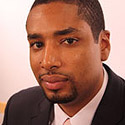01:35 PM
Why Wall Street Is Hungry For Quants, Even As It Shrinks
Nearly four years have passed since the peak of the global financial crisis, but many banks are still in rough shape, and it remains as difficult as ever to find a job on Wall Street. Since 2008 a wave of consolidation on the sell side, along with the specter of intensifying regulations, have combined to help reduce the number of trading jobs available at investment banks.
But even as those opportunities shrink, industry sources say demand on the buy side for the brightest mathematical minds the academic world has to offer is stronger than ever. As a result, students who are pursuing advanced degrees in subjects such as financial engineering or computational finance have a leg up in the Wall Street job market.

Advanced Trading's Top 10 Quant Schools of 2012Where will the next generation of quantitative engineers come from? According to Wall Street pros, these are the elite quant programs.
"The job market is not as golden as it was four or five years ago, but I do think people with the quantitative talents that students in financial engineering programs bring have an edge compared to people from other disciplines," says Petter Kolm, the director of New York University's master in financial mathematics program. "There's continued demand for quants. Not everyone is getting a job in this environment, but students out of the top programs are. We're close to a 100 percent placement rate each year," he adds of the NYU quant program.
Most of these graduates are venturing off into jobs at traditional asset management firms, hedge funds and proprietary trading operations, university sources say. As companies' long-term health increasingly is tied to the strength of their technology, a quant's ability to build forecasting models that can predict where the market's going or to write algorithms that minimize transaction costs is more valuable than ever on the buy side.
And buy-side firms are willing to pay top dollar for students with these skills. The average first-year salary for graduates of the University of California at Berkeley's Haas School of Business M.F.E program was $158,273 in 2011, according to the school's website. Even interns from the program earned, on average, nearly $8,000 a month.
Making the Grade
But these programs are not easy to get into. Columbia University received well over 1,000 applicants to its Master of Science in Financial Engineering program this year, but the school accepted only 110. A typical class has around 70 or 75 students, according to the director of Columbia's quant program, Emmanuel Derman, who is also the co-head of risk management at the hedge fund Prisma Capital Partners.
The standards for the University of Chicago's financial mathematics program are slightly less daunting, but the program hardly qualifies as a "safe school" -- it traditionally has admitted around 33 percent to 40 percent of applicants, notes William DeRonne, the executive director of the university's financial mathematics department. An average class, he adds, usually has between 75 and 80 students.
Columbia's Derman says prospective students go through an intense weeding out process to make it into Columbia's financial engineering program. The gauntlet includes essay writing, exams and interviews.
"It's easy to find people with very good grades, but we've also got to figure out if they've got the skills to successfully work in this area," Derman explains. "The most difficult thing is, we have a lot of people who have been working for five or six years who come back for more education. It's difficult if they've lost their quantitative skills, so that's the first thing we look for, because everything starts fast, and they won't be able to keep up."
Before a potential student commits the time, energy and money to pursuing a quant-oriented degree, Rutgers Business School professor John Longo says, he warns them that this sort of education opens up far less job opportunities in the long run than an M.B.A. "From a career perspective the M.B.A. provides you with a much broader skill set," says Longo, who is also the chief investment strategist at wealth management firm MDE Group. "If somebody says to me I want to do program trading, statistical arbitrage or high-frequency trading, I'd say, 'Yes, a master's in quantitative finance is for you.' But unless they want to do this kind of program trading, an M.B.A. is better for a broader skill set."
As the Senior Editor of Advanced Trading, Justin Grant plays a key role in steering the magazine's coverage of the latest issues affecting the buy-side trading community. Since joining Advanced Trading in 2010, Grant's news analysis has touched on everything from the latest ... View Full Bio
























